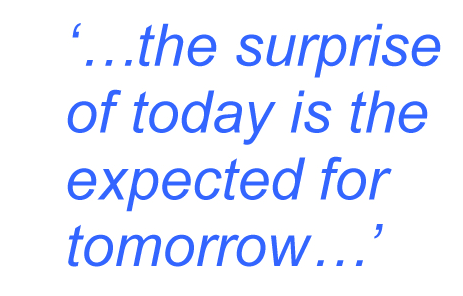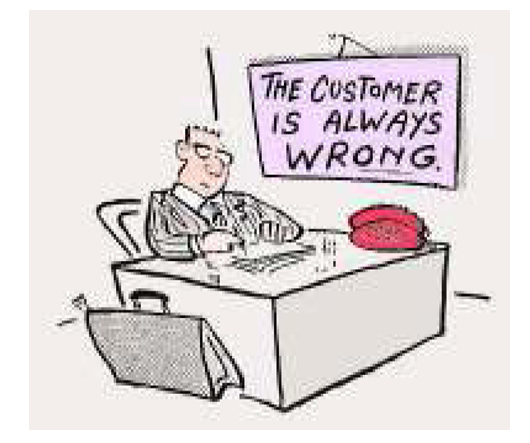THE CUSTOMER IS NOT ALWAYS RIGHT
WRITTEN BY: JOEY NG
The Customer is NOT Always Right
An Article by Joey Ng
7th July 2010
The customer is not always right! However, the customer can never be wrong. There is a clear distinction between these two statements and the implication of subscribing to either statement is very, very different.

The customer is always right’ mentality has its root from the Master/Slave relationship in which power and ultimate authority is handed over to the Master. Without power and authority, the slave (service provider) can only say yes to the master(client).
It is a challenge to disagree with the customer. ‘The customer is always right’ mentality is reciprocal – service provider will always say yes, and when they themselves wear the shoes of a customer, they will expect the same. And the cycle continues.
The belief that customer is always right is both narrow and shallow in thinking. The path of least resistance opens the door to just saying yes to everything the customer requested, the easy and lazy way out of a discussion, with no thoughts on the bearing of the decision. When working in a team, one of the most
frustrating situation members find themselves in is when the implication of someone else’s decision falls on them. Generally, the implications of the decision will be felt sometime down the road. While trying to fulfill all those promises made, one will sometimes wonder, ‘is it all worth while?’ The distinction between time consuming and a complete waste of time is how much difference those additional effort made. Customers being customers, they will want everything. To some, or most, value for money simply means quantity. One side of the coin will argue, ‘we should always satisfy the client’, the other side will reply, ‘there isalways another way to satisfy the client’.
A point for everyone to note is- the surprise of today is the expected for tomorrow. If the client receives a free gift today, they would expect the same to happen again. If they
are offered a bargain the first time, they will not expect any changes next time round.

The customer is not always right, but, the customer can never be wrong!
The customer can never be wrong because being the pay master, they have the right to request and demand. But, this does not mean they all should be fulfilled. As the Subject-Matter-Expert (SME), it is the service provider’s responsibility to educate the customer and share with them the ‘feasibles’ and ‘suitables’.
Educating clients requires an investment of time and effort, but in the long run, it forges closer ties between both parties. Events or personnel that changes the way we think remains longer in our memories. Of course, what was shared must first click with them. The paradigm of ‘not always correct’ is strategic in nature because it looks beyond a single transaction. A few feathers might probably be ruffled in the beginning but, in the grand scheme of things, it is for the good of the customer. It is definitely easier to just say yes to everything, instead of explaining why certain things won’t work and brainstorming a new solution. But, what is the price?

The key to keeping customer coming back time and again is to build and maintain a solid relationship. The way to start is by delivering a good product based on what works. Agreeing to every request made by the customer will not guarantee result. Clients will always seek for the ideals, but the ideals might not work for them. And when it does not work, guess who the fingers will be pointing. As the SME, the service provider has by a far a wider spread of knowledge and experience to understand what is ideal for the customer. And sometime, the ideal is telling them ‘NO’!
Saying ‘No’ to a customer requires courage. Doing away with
the mindset of ‘The customer is always right’ is a good way to
start. And of course, telling them ‘NO’ should be soundly back
by rationality (what make sense) and conviction (believing that
their ideas really won’t work). The threat of losing a customer
because someone else would say ‘Yes’ is real. At the same
time, just blindly saying ‘Yes’ will bring about its repercussions.
Being eager to please will keep the power hungry customer coming back for
more, power! The challenge, as always is to find the right balance. The word ‘No’
is not easy to digest for many. Replace it with sentences or terms that shows
tactfulness and make it known that the customer’s point of view is heard will
cushion the blow.

‘The customer is always right’ is a mentality or approach that people carries with them, either imbued from past experiences or, created by the environment. And this mentality will dictate the way people think, make decisions, feel and behave.
Think about this, what would a team or an organization be like if ‘The Leader is
Always Right?


